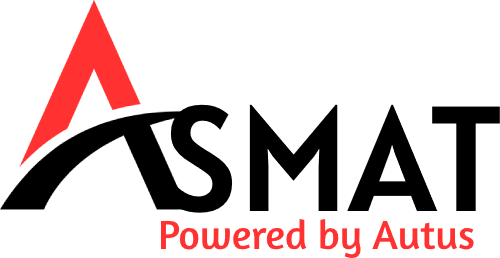
The digital marketing industry is booming, and professionals are in high demand like never before. If you’re a recent graduate exploring career options, someone considering a career change, or a working professional looking to upskill, digital marketing offers incredible opportunities for growth and financial success.
Companies across every industry need digital marketing experts to reach customers online, creating thousands of new jobs each month. The field offers amazing flexibility – you can work remotely, choose from dozens of specializations, and often earn competitive salaries without needing years of experience or expensive degrees.
In this guide, we’ll explore why digital marketing presents such strong career opportunities right now, including the diverse paths available from social media management to data analytics. We’ll also cover the impressive earning potential and flexible work arrangements that make this field particularly attractive for today’s professionals.
Growing Market Demand Creates Abundant Career Opportunities

Businesses shifting from traditional to digital advertising strategies
Companies worldwide are making a dramatic pivot from traditional advertising channels like print, radio, and television to digital platforms. This shift isn’t just a trend – it’s a fundamental transformation driven by changing consumer behavior and measurable ROI. Businesses now recognize that their audiences spend more time online than consuming traditional media, making digital marketing the most effective way to reach potential customers.
Marketing budgets are being reallocated at unprecedented rates. A typical company that once spent 70% of its advertising budget on traditional channels now invests that same percentage in digital marketing initiatives. This creates countless job opportunities across content creation, social media management, paid advertising, email marketing, and analytics roles.
Rising e-commerce adoption increases need for digital marketers
The e-commerce boom has created an insatiable demand for skilled digital marketers. Online retail sales continue growing year over year, with new brands launching daily and established retailers expanding their digital footprints. Every e-commerce business needs professionals who understand SEO, conversion optimization, customer acquisition, and retention strategies.
Beyond traditional retail, service-based businesses are also creating online sales funnels. From software companies to consulting firms, everyone needs digital marketing expertise to attract leads and convert them into customers. This expansion means more specialized roles in areas like marketing automation, customer journey mapping, and performance analytics.
Small businesses embracing online presence for survival
Small and medium-sized businesses have discovered that digital marketing levels the playing field against larger competitors. A local restaurant can now compete with national chains through targeted social media campaigns and local SEO strategies. This democratization of marketing has created tremendous opportunities for digital marketers who understand how to help smaller businesses maximize their limited budgets.
These businesses often need generalists who can handle multiple aspects of digital marketing – from managing social media accounts to running Google Ads campaigns and optimizing websites. The personal relationships and direct impact you can have working with smaller businesses make these roles particularly rewarding.
Government and non-profit sectors expanding digital reach
Public sector organizations and non-profits are rapidly modernizing their communication strategies. Government agencies need to reach citizens where they are – online. Non-profits must compete for attention and donations in an increasingly crowded digital space. These sectors offer stable career paths with meaningful work that directly impacts communities.
These organizations often have unique challenges, like strict compliance requirements or limited budgets, creating specialized opportunities for marketers who understand these constraints. The growing emphasis on transparency and public engagement makes digital marketing skills essential for these sectors’ success.
Diverse Career Paths Offer Multiple Specialization Options

Social media marketing and community management roles
Social media marketing has become the heartbeat of modern brand communication. Companies need specialists who can craft engaging content, build authentic relationships with audiences, and turn followers into loyal customers. Social media managers create content calendars, design visual assets, and develop brand voice across platforms like Instagram, TikTok, LinkedIn, and Twitter.
Community management takes this a step further by focusing on building genuine connections with audience members. Community managers respond to comments, moderate discussions, handle customer service inquiries, and create spaces where brand enthusiasts can connect with each other. They’re the human face behind the brand, turning casual followers into brand advocates.
The earning potential varies widely based on experience and company size. Entry-level social media coordinators typically start around $35,000-$45,000, while experienced social media strategists and community managers can earn $60,000-$90,000 or more at larger companies.
Search engine optimization and content marketing positions
SEO specialists help websites climb Google’s search rankings through technical optimization, keyword research, and strategic content planning. They analyze website performance, identify optimization opportunities, and implement changes that drive organic traffic. The role combines technical skills with creative thinking, making it perfect for people who enjoy both data analysis and strategic planning.
Content marketers create valuable, relevant content that attracts and engages target audiences. They write blog posts, create video scripts, develop infographics, and plan content strategies that align with business goals. Content marketing roles often overlap with SEO, as creating search-optimized content is essential for digital success.
These positions typically offer strong career progression paths. SEO analysts start around $40,000-$55,000, while senior SEO managers and content marketing directors can earn $75,000-$120,000 or more. Many professionals in these roles also build successful freelance practices or consulting businesses.
Pay-per-click advertising and analytics specializations
PPC specialists manage paid advertising campaigns across Google Ads, Facebook Ads, LinkedIn, and other platforms. They create ad copy, design targeting strategies, manage budgets, and optimize campaigns for maximum return on investment. The role requires analytical thinking, creativity, and the ability to make data-driven decisions quickly.
Digital analytics specialists dive deep into data to uncover insights about user behavior, campaign performance, and website optimization opportunities. They use tools like Google Analytics, Adobe Analytics, and various marketing automation platforms to track metrics, create reports, and provide actionable recommendations to improve marketing performance.
These specialized roles command competitive salaries due to their direct impact on revenue. PPC specialists typically earn $45,000-$70,000, while senior PPC managers and analytics directors can earn $80,000-$130,000 or more. Many professionals combine both skills, making themselves even more valuable to employers.
Email marketing and marketing automation careers
Email marketing specialists create campaigns that nurture leads, retain customers, and drive sales through strategic email communication. They design email templates, write compelling copy, segment audiences, and analyze campaign performance. The role has evolved far beyond simple newsletters to include complex automated sequences and personalized messaging.
Marketing automation specialists build sophisticated systems that deliver the right message to the right person at the right time. They set up workflows that respond to user behavior, create lead scoring systems, and integrate various marketing tools to create seamless customer experiences. These roles require technical skills combined with strategic marketing thinking.
Both specializations offer excellent growth potential and job security, as email marketing consistently delivers strong ROI for businesses. Email marketing coordinators typically start around $40,000-$50,000, while marketing automation managers and directors can earn $65,000-$110,000 or more. The skills transfer well across industries, providing career flexibility.
High Salary Potential and Financial Growth Prospects

Entry-level positions offer competitive starting salaries
Digital marketing newcomers enjoy surprisingly robust starting compensation compared to other fields. Fresh graduates can expect salaries ranging from $40,000 to $55,000 annually, with major metropolitan areas pushing these figures even higher. Social media coordinators typically start around $38,000-$45,000, while junior PPC specialists and content marketers often command $42,000-$52,000 right out of college.
The beauty lies in rapid salary progression. Most entry-level professionals see 15-25% increases within their first two years as they develop specialized skills. Companies desperately need digital talent, creating a seller’s market where even beginners have negotiating power. Many employers sweeten deals with performance bonuses, professional development budgets, and stock options.
Experienced professionals command premium compensation packages
Seasoned digital marketers enjoy exceptional earning potential that rivals traditional high-paying careers. Marketing managers with 3-5 years experience typically earn $65,000-$85,000, while senior specialists in areas like SEO, paid advertising, or marketing automation can command $75,000-$120,000 annually.
Director-level positions often exceed $150,000, with VP roles reaching $200,000-$300,000 in major markets. Specialized skills drive these premium rates – conversion optimization experts, marketing technologists, and growth hackers are particularly well-compensated. Stock options and profit-sharing arrangements add substantial value to base salaries.
The compensation extends beyond money. Many companies offer unlimited PTO, flexible schedules, home office stipends, and generous professional development budgets. These perks can add $10,000-$20,000 in annual value.
Freelancing opportunities provide additional income streams
Digital marketing skills translate perfectly into lucrative side hustles and freelance careers. Many professionals double their income through consulting work, often charging $75-$200 per hour depending on expertise and market positioning.
Popular freelance opportunities include:
- Social media management: $500-$3,000 monthly per client
- PPC campaign management: $1,000-$5,000 monthly retainers
- Content creation: $50-$300 per blog post or article
- Email marketing setup: $2,000-$10,000 project fees
- Website optimization audits: $1,500-$7,500 per project
The freelance market thrives because businesses need digital expertise but can’t always justify full-time hires. This creates perfect opportunities for professionals to monetize their skills independently. Many successful freelancers eventually scale into agencies, generating six or seven-figure annual revenues.
Remote work capabilities make geographic limitations irrelevant – professionals can serve clients globally, accessing higher-paying markets regardless of their location. The skills you develop in traditional employment directly transfer to independent consulting, creating multiple paths to financial growth throughout your career.
Work Flexibility and Remote Career Advantages

Location independence enables global job opportunities
Digital marketing professionals enjoy unparalleled geographic freedom that traditional careers rarely offer. Your laptop becomes your office, and an internet connection transforms any location into a potential workplace. This freedom opens doors to international clients and companies without the need for relocation or expensive visa processes.
Many digital marketers work with clients across different continents, managing campaigns for London startups while living in Thailand or running social media strategies for New York businesses from their home in Toronto. Time zone differences can actually become advantages, allowing you to serve clients around the clock by coordinating with team members in different regions.
Companies worldwide actively seek digital marketing talent, creating a truly global job market. You can apply for positions at Silicon Valley tech companies, European e-commerce brands, or Australian agencies without ever leaving your current city. Remote-first companies like Buffer, Zapier, and Shopify regularly hire digital marketers from anywhere in the world, offering competitive salaries regardless of your physical location.
Flexible schedules accommodate work-life balance preferences
Digital marketing naturally aligns with flexible working arrangements because much of the work revolves around online activities that don’t require traditional business hours. Campaign optimization can happen at midnight, content creation flows better during your peak creativity hours, and analytics review fits perfectly into your morning coffee routine.
Results matter more than hours logged at a desk. If you deliver successful campaigns, meet deadlines, and achieve KPIs, most employers and clients care little about whether you’re working at 6 AM or 10 PM. This performance-based culture gives you control over your daily schedule like few other professions.
Parents can attend school events, night owls can work during their most productive hours, and early birds can finish their workday by lunch. Digital marketing accommodates personal rhythms and life circumstances, making it ideal for people who struggle with rigid 9-to-5 structures.
Project-based work allows for diverse client experiences
The project-driven nature of digital marketing creates opportunities to work across multiple industries simultaneously. One week you might develop content strategies for healthcare companies, while the next focuses on e-commerce optimization for fashion brands. This variety keeps work engaging and builds a diverse skill set that increases your market value.
Freelance platforms like Upwork, Fiverr, and 99designs connect digital marketers with short-term projects ranging from quick social media audits to comprehensive 6-month campaign overhauls. Each project brings unique challenges, teaching you about different business models, target audiences, and marketing approaches.
Project work also provides natural breaks between intensive periods, allowing time for skill development, personal projects, or vacation without the guilt of unused PTO days. You control your workload and can scale up during busy periods or scale back when life requires more attention elsewhere.
Part-time and contract positions suit various lifestyle needs
Digital marketing offers abundant part-time opportunities that still provide meaningful income and career development. Many businesses need help with specific tasks like social media management, email marketing, or PPC campaign management but don’t require full-time commitment.
Contract positions often pay higher hourly rates than permanent roles while providing valuable experience with different companies and marketing approaches. These arrangements work perfectly for students, parents, retirees looking for supplemental income, or professionals transitioning between careers.
The skills you develop in part-time digital marketing roles transfer seamlessly to full-time positions when your circumstances change. Starting with a 20-hour weekly commitment to social media management can naturally evolve into comprehensive digital strategy roles as your expertise and availability grow.
Continuous Learning Keeps Your Skills Marketable

Rapidly evolving platforms require ongoing skill development
Digital marketing platforms change faster than fashion trends. What worked on Facebook last year might be obsolete today, and new features on TikTok, Instagram, or LinkedIn can completely reshape how brands connect with audiences. Google updates its algorithms hundreds of times each year, while social media platforms constantly roll out new advertising formats, targeting options, and content types.
This constant evolution means your skills stay sharp and relevant. You’re never stuck doing the same thing repeatedly because the landscape keeps shifting. One month you might be mastering Instagram Reels, the next you’re diving into AI-powered chatbots or exploring the latest email automation features. This variety keeps the work exciting and ensures you’re always building valuable, in-demand skills.
The flip side is that you can’t coast on yesterday’s knowledge. Successful digital marketers embrace this reality and build learning into their routine. They follow industry blogs, subscribe to platform updates, and experiment with new features as they launch.
Free and affordable online courses make learning accessible
Learning digital marketing skills has never been more accessible or budget-friendly. Platforms like Google Digital Marketing Courses, HubSpot Academy, and Facebook Blueprint offer comprehensive training programs at no cost. These aren’t basic introductions either – they’re detailed courses created by the platforms themselves, covering everything from search engine optimization to advanced advertising strategies.
YouTube serves as an endless library of tutorials where experienced marketers share real-world strategies and case studies. Coursera, Udemy, and Skillshare provide structured learning paths for under $50 per course, often with lifetime access to materials and updates.
Many successful digital marketers started their journey through these self-paced online resources. You can learn during lunch breaks, evenings, or weekends, making it perfect for career transitions or skill upgrades while maintaining your current job.
Industry certifications boost credibility and earning potential
Professional certifications carry serious weight in digital marketing. Google Ads certifications, Google Analytics qualifications, Facebook Blueprint certifications, and HubSpot credentials are recognized globally by employers and clients. These certifications prove your expertise with specific platforms and can significantly boost your earning potential.
Many certifications are free to obtain and only require passing an online exam. Others, like advanced Facebook or LinkedIn certifications, might cost a few hundred dollars but often lead to salary increases that pay for themselves within months.
| Certification | Cost | Typical Salary Boost |
|---|---|---|
| Google Ads Certified | Free | $5,000-$8,000 annually |
| Facebook Blueprint | Free | $4,000-$7,000 annually |
| HubSpot Certified | Free | $3,000-$6,000 annually |
| Salesforce Marketing Cloud | $200 | $8,000-$12,000 annually |
Networking opportunities through professional communities and events
Digital marketing communities are incredibly welcoming and collaborative. Professional groups on LinkedIn, Facebook communities like Social Media Examiner, and local marketing meetups provide opportunities to connect with peers, share experiences, and learn from others’ successes and challenges.
Industry conferences like Content Marketing World, Social Media Marketing World, and local digital marketing events offer chances to meet potential mentors, collaborators, or even future employers. Many of these events now offer virtual attendance options, making them accessible regardless of location or budget.
Online communities often share job opportunities, freelance projects, and collaboration requests before they hit traditional job boards. Building relationships within these networks can lead to referrals, partnerships, and insider knowledge about industry trends and opportunities.
Low Barrier to Entry Makes Career Transition Achievable

Minimal upfront investment compared to traditional business degrees
Getting into digital marketing doesn’t require breaking the bank or spending years in expensive university programs. While a traditional business degree can cost anywhere from $40,000 to $200,000, you can start learning digital marketing skills for practically nothing. Free resources like Google Digital Marketing courses, HubSpot Academy, and YouTube tutorials provide comprehensive training that rivals expensive college programs.
The tools you need are surprisingly affordable too. A basic computer, internet connection, and access to free versions of marketing platforms like Google Analytics, Facebook Business Manager, and Canva are enough to get started. Even premium tools like SEMrush or Hootsuite offer free tiers or low-cost plans under $100 monthly.
Compare this to other career transitions that might require specialized equipment, certifications, or lengthy apprenticeships. Digital marketing lets you dive in immediately without massive financial commitments or student loans hanging over your head.
Portfolio development possible through personal projects and volunteering
Building a digital marketing portfolio doesn’t require waiting for someone to hire you first. You can create impressive case studies by launching your own projects or helping local businesses and nonprofits with their marketing challenges.
Start a blog about something you’re passionate about and document your growth strategies. Launch a social media campaign for a friend’s small business. Create and run Google Ads for a local charity. These real-world projects showcase your abilities better than any theoretical assignment ever could.
Volunteer opportunities are everywhere. Animal shelters need social media management, local restaurants want help with online reviews, and community events require promotion. Each project becomes a portfolio piece that demonstrates your problem-solving skills and results-driven approach.
The beauty of digital marketing is that everything is measurable. You can show concrete results like increased website traffic, improved engagement rates, or higher conversion numbers. These metrics tell a compelling story to potential employers or clients.
Transferable skills from other industries apply to digital marketing
Your previous career experience isn’t wasted when transitioning to digital marketing. Almost every profession has given you skills that translate directly to marketing success.
Sales professionals already understand customer psychology, objection handling, and the importance of building relationships. These skills are gold in digital marketing, where understanding your audience and creating compelling messages drives results.
Teachers and trainers excel at breaking down complex information into digestible content, a crucial skill for content marketing and email campaigns. Customer service representatives understand pain points and communication preferences that inform targeting strategies.
Project managers bring organizational skills and the ability to juggle multiple campaigns simultaneously. Graphic designers can create visual content that stands out in crowded social media feeds. Even accountants contribute by understanding ROI and budget allocation.
Writing experience from any field translates to content creation, copywriting, and social media management. Public relations professionals already know how to craft brand messages and manage reputation.
The key is reframing your existing skills in marketing terms. Instead of saying you “handled customer complaints,” you “managed customer experience optimization.” This perspective shift helps you see how valuable your background really is in the digital marketing world.

The digital marketing landscape has never been more promising for career seekers. With businesses across every industry rushing to establish their online presence, the demand for skilled digital marketers continues to surge. You can choose from countless specialization paths—whether you’re drawn to social media strategy, content creation, SEO, or data analytics—while enjoying competitive salaries that often exceed traditional marketing roles.
What makes this career path even more attractive is the flexibility it offers. You can work from anywhere, set your own schedule in many roles, and constantly learn new skills that keep you ahead of the curve. The best part? You don’t need years of formal education or expensive certifications to get started. With dedication and the right online resources, you can build a portfolio and land your first digital marketing job within months. If you’ve been considering a career change or just starting out, there’s no better time than now to jump into digital marketing.
